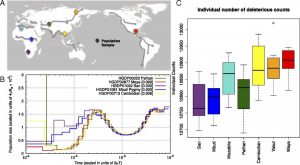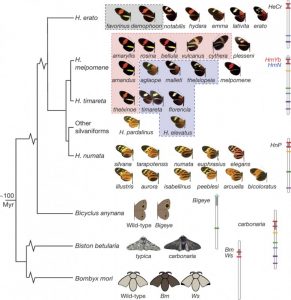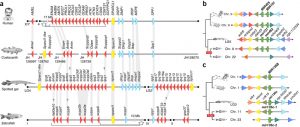This Autumn, we will continue to discuss papers in related series:
Series 1: human genome evolution
- Sulem et al 2015 Identification of a large set of rare complete human knockouts. Nature Genetics 47: 448–452
- Hehn et al 2016 Distance from sub-Saharan Africa predicts mutational load in diverse human genomes. PNAS 113: E440-E449
- Lek et al 2016 Analysis of protein-coding genetic variation in 60,706 humans. Nature 536: 285–291
Series 2: moth coloration
- van’t Hof 2016 The industrial melanism mutation in British peppered moths is a transposable element. Nature 534: 102–105
- Nadeau et al 2016 The gene cortex controls mimicry and crypsis in butterflies and moths. Nature 534: 106–110
Series 3: gene and genome duplication
- Braasch et al 2016 The spotted gar genome illuminates vertebrate evolution and facilitates human-teleost comparisons. Nature Genetics 48: 427–437
- Lien et al 2016 The Atlantic salmon genome provides insights into rediploidization. Nature 533: 200–205
- Lan and Pritchard 2016 Coregulation of tandem duplicate genes slows evolution of subfunctionalization in mammals. Science 352: 1009-1013



